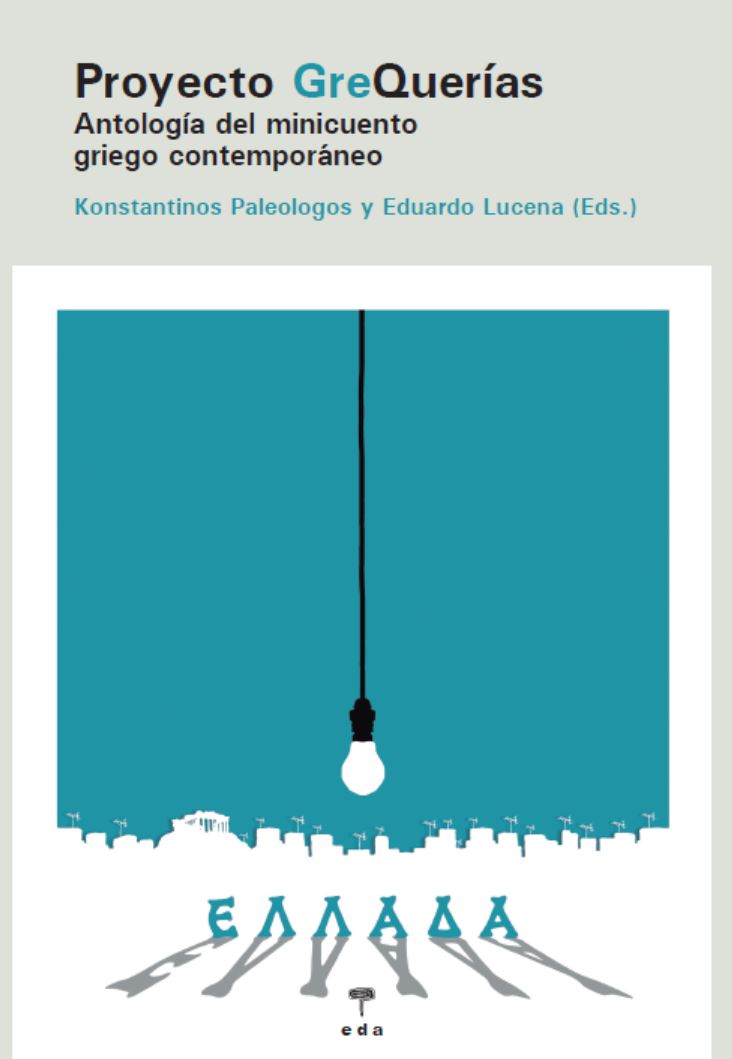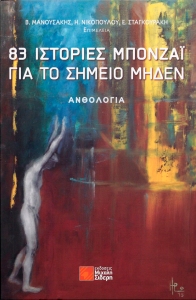
Stratis Tsirkas
The Carols
[A New Year’s Day Story]
[The story takes place in the old time Cairo Greek Community, where three children fall victims to a gang of bullies.]
 OU SEE, the big issue was the drum: if you had a drum, the job was considered done. It was easy to find a partner and the lantern did not cost more than a piaster. That year father made an extravagant expenditure. On new year’s midday Eve, he brought me a drum! A smallish one, certainly, made of tin.
OU SEE, the big issue was the drum: if you had a drum, the job was considered done. It was easy to find a partner and the lantern did not cost more than a piaster. That year father made an extravagant expenditure. On new year’s midday Eve, he brought me a drum! A smallish one, certainly, made of tin.
«In this way, you won’t break it easily,» he told me. But I thought he was merely being thrifty. In the first years after the war, leather drums cost a whole lot of money.
I went over to Michali’s, my friend. He was the gallant of the neighborhood and the best partner to sing the carols with. The neighborhood urchins often used to attack us in order to tear the lantern or break the drum; that’s why Michali was invaluable.
«We have the drum,» I hollered him. «Shall we go out tonight?»
Michali accepted immediately, but he suggested we take his brother Dimitri with us, too. He was sweet-voiced, which would be very helpful with our job. The truth is that Dimitri sang like an angel. It sufficed that you could hear him sing The Akathist or read out from Paul’s Epistles and you would rather choose going to Saint Constantine’s Church, where he was a cantor, than to Saint Nicholas’. However, Michali’s proposition concealed an ulterior motive: the money earned would be divided into three parts. They would get the lion’s share while I, despite my drum, would get the least. Nevertheless, I accepted without a second thought; such was my love and admiration for him!
We set out in the evening. Michali wore a long, black overcoat that comically swelled in his belly covering thus the drum. I was responsible for the paper lantern, which I often had to light and put it out. Dimitri, like a prince, fair-eyed and sweet-voiced, his hand in his pockets he was walking sometimes in front of us, other times falling behind as though we were strangers to him. Michali was taunting him for behaving like an aristocrat for Rinoula’s beautiful eyes. However, it took me many years to understand the significance of that taunt. The majority of Michali’s and Dimitri’s clients came from the poor neighborhoods; therefore, their proceeds were modest. We extended a word of thanks when we were given an extra piaster besides the usual handful of hazels and almonds. And then I led them to the classy suburbs; that was my secret I had kept for days. My father’s barber shop was constantly patronized by doctors and lawyers, who had been asking me for days:
«Hey buster, won’t you come over to us and sing the Carols?» to which I responded vaguely. However, I noted the name and saw to finding out their addresses. So, at the most hopeless moment of our enterprise I divulged to my friends a list with a half dozen notable names.
«Let’s go,» I told them in a superior air.
«Are you joking?» they were both aghast. «They’ll practically kick us out!»
«Don’t worry,» I reassured them; «I know what I’m doing.»
As soon as a door opened, my job was to announce that Taki, the barber’s, Master Stefano’s son, has come to sing the Carols. Thus we made a pile. Shillings flowed in to cover the meager piasters from the low class neighborhoods.
However, I didn’t like one thing: as soon as the proprietors of those houses heard who at the door was, they invited me in leaving my friends outside. They treated me in particular giving me an extra shilling aside and telling me that that should be only for me. Then I resented recalling Michali’s trick to inflict Dimitri on me, but I could hardly hold it up, and I confessed everything. So, my particular earnings went to the common cash. All would have gone fine the following day; we would have had a wonderful time, going to the movies, and so on, had we not, on our return, met, met ‘Crabstick’ Spyro with his gang over at Maarouf orchards.
‘Crabstick’ Spyro was a bully, a monstrous bum and a blasphemer. He used to peddle cinnamon buns outside St. Constantine’s church on Sundays. He was accompanied by two of his goons —Holy Virgin keep us— who carried a hurdy-gurdy and a glass lantern decorated with all sorts of ribbons and papers. What a dumb thing of Dimitri to take us to that dark quarter and brag about our earnings! No sooner had we realized it than the bums stormed upon us, stole our money and broke the drum. Michali, though a brave kid, had no chance with those bruisers.
Weeping and carrying my now spent paper lantern, I headed straight for home. Michali and Dimitri chased the bums vainly calling the shawishes* to arrest them. I don’t know what became of my friends; I didn’t ask or I no longer remember. But what I do remember is spending the holidays in disconsolate bitterness and grief. My childish mind could not accept the fact that there were a host of other people more woebegone that I and the unhappy incident with ‘Crabstick’ Spyro was but an infinitesimal instance of injustice and violence that still reign supreme in the world.
*Police sergeants.

Source: From short stories collection Christouyeniatikes Istories (ed. Dimitris Posantzis, Kastaniotis Publishers, Athens, 2009).
Stratis Tsirkas (July 23, 1911, Cairo, Egypt – January 27, 1980, Athens, Greece). Greek author, one of the most remarkable writers of the post war generations. He is widely known for his fictional trilogy Drifting Cities (Akyvernites Politeies) as well as his novel The Lost Spring (I Chameni Anixi).
Translation in English:
Vassilis Militsis (1947). He attended secondary education in Greece and from 1963 to 1965 continued his studies at Apopka High School, Florida, USA. In 1973 he graduated from The University of Thessaloniki, Greece, with a B.A. degree in English. He taught at state Greek schools, both in Greece and Germany. He retired in 2010. He has a good command of German, Italian and French. He and Mr. Wolfgang Reumuth are the authors of the Praktische Grammatik der neugriechischen Sprache, for foreigners.
Filed under: Τσίρκας Στρατής,Tsirkas Stratis | Tagged: Stratis Tsirkas | Τὰ σχόλια στὸ Stratis Tsirkas: The Carols ἔχουν κλείσει







